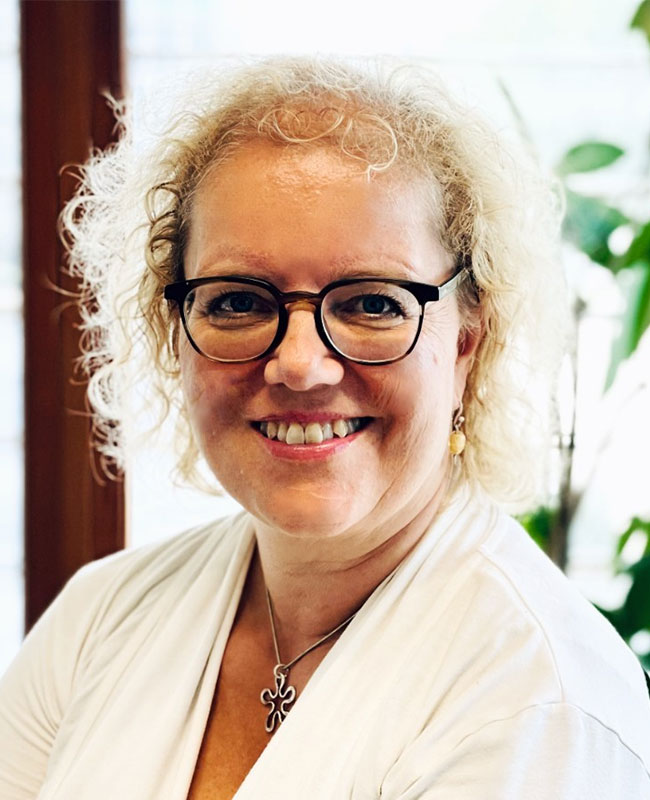Do you know what the Stockholm Region European Office in Brussels works with? The office represents one of Europe's most competitive, sustainable, and innovative regions in the EU.
The office aims to make the Stockholm region visible in Brussels and strengthen its image as one of Europe's most attractive metropolitan regions and an essential partner in the EU arena.

– We focus on a few selected priority areas: climate, environment, energy, and transport, as well as research and innovation, cohesion policy and digitalisation, explains Anne Andersson, CEO of the Stockholm Region EU Office.
Influencing EU policy in a favourable direction
The office is based in Brussels, and its mission is to monitor the common political interests of the Stockholm region within the EU. The office works to influence the EU policy in a favourable direction for the region. Owned by the non-profit organisation Stockholm Region Association for European Affairs, the office represents the City of Stockholm, Region Stockholm, and the Association of Local Authorities of Greater Stockholm (Storsthlm), as well as Region Gotland, Region Sörmland, Region Västmanland, Region Uppsala and the Council for Stockholm-Mälaren Region (Mälardalsrådet).
– It is possible to follow the agenda within the EU institutions, the system's transparency is well developed, and it is also possible to be part of the discussions. The Stockholm region scores high in rankings of innovation performances, has a well-developed tech scene, and is perceived as a competitive region. This is a valuable basis for our work with influencing EU policy in a favourable direction for the region. The fact that Stockholm is one of the EU 100 climate neutral and smart cities, now with a Mission label from the European Commission, says Anne Andersson.
Collaboration with the University Alliance Stockholm Trio
Since 2020, Karolinska Institute, KTH Royal Institute of Technology, and Stockholm University have a representative office in Brussels and share the space with the Stockholm Region European Office. The University alliance Stockholm Trio works on issues prioritised for the region within the field of research and innovation, which means that the offices partly work on common issues. For example, the offices collaborate on matters relating to the EU's research and innovation programme in Life Science and health issues.

– Collaborating is a win-win situation as our offices complement each other. The university alliance focuses on contributing with input to the European Commission before they present a proposal and being very active in implementing the Framework programme for Research and Innovation (Horizon Europe). Together with our colleagues in the Stockholm Region European Office, we strengthen our work towards the EU's institutions and can cover a wider scope of EU policy, says Dan Andrée, Senior Advisor at the University Alliance Stockholm Trio.
Main issues on the agenda
Currently, the Stockholm Region EU Office is working on issues within their prioritised policy areas that are currently on the legislative agenda at the EU level. For example, they are already looking at the EU's upcoming research and innovation programme for the next period (2028-2034), the EU's upcoming programming period for cohesion policy (2028-2034) and the upcoming legislative proposal on the REACH regulation on pharmaceuticals and chemicals, which is expected to be presented in spring 2024. In recent years, they have, for example, worked on issues such as the European health data area, the TEN-T regulation, digitalisation in mobility and the EU's climate targets for 2040.
– There are interesting times ahead, with the upcoming EU elections in June 2024 leading to a new European Parliament and followed by a new EU Commission in the autumn. We are eager to follow which issues will be in focus by the next mandate and which will be the greatest challenges outlined. There will be a new EU agenda for us to consider and many issues to pursue. Together with our members, we will continue to focus on the prioritised issues for the Stockholm region regarding EU collaboration and development, says Anne Andersson.
Working in life science
The Stockholm region is one of the leading regions for Life Science in the EU. The EU Commission continues to propose legislation, recommendations and initiatives that impact the Life Science sector in the Stockholm region. Stockholm Region EU Office is working daily to monitor the field and influence the proposals within Life Science together with our members.
For example, the proposal for a regulation on the European Health Data Space presented in May 2022 is a legislative file that the Stockholm Region EU Office has closely monitored. Furthermore, in April 2023, the European Commission proposed a reform of the EU pharmaceutical legislation, known as the pharmaceutical legislation package, which involves new regulations that will affect the Life Science sector in the Stockholm region.
More successful in the long term
To be successful in the EU, it is advantageous that EU legislation favours the Stockholm region.
– We must work with our members to influence the legislation to be as advantageous as possible. This means that we must make the Stockholm region's voice heard, and we have various tools to do so. It is important to monitor and prepare in good time for various consultations with our members on legislative proposals presented by the European Commission and to be active in the following process within the European Parliament and the Council of the European Union, says Anne Andersson.
Anne Andersson stresses, in addition to the tools mentioned above, the importance of finding partners to collaborate with and various networks to be active in to strengthen their voice. Similarly, they must take the opportunity to showcase the strengths of the Stockholm region and raise awareness of its strengths by organising seminars and events, preferably in cooperation with the EU's institutions and other European regional offices.
– Our voice makes a difference, and our input is well received. Therefore, we must always strive to strengthen our advocacy and visibility, which will make the Stockholm region more successful in the EU in the long run, concludes Anne Andersson.
